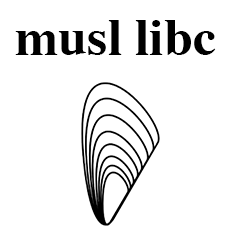Compare Products

|

|
Features * Support for configurability - A primary feature of EGLIBC is support for configurability. You can build EGLIBC without support for NIS, locales, or other things that you may not need in your embedded system.
* Compatibility - EGLIBC strives to be source- and binary-compatible with GLIBC. In default configuration EGLIBC is fully GLIBC-compatible.
* Cross-building - EGLIBC contains various improvements and bug fixes to support building of EGLIBC for targets that do not provide enough resources to run the compiler, assembler, linker and other necessary tools. EGLIBC aims to provide exactly the same installation whether building natively or in cross environments. EGLIBC documents and supports procedure for bootstrapping a cross toolchain without having previously installed libc binaries for that target.
* Cross-testing - Developers writing software for embedded systems often use a desktop or other similarly capable computer for development, but need to run tests on the embedded system, or perhaps on a simulator. When configured for cross-compilation, the stock GNU C library simply disables running tests altogether: the command make tests builds test programs, but does not run them. EGLIBC provides facilities for compiling tests and generating data files on the build system, but running the test programs themselves on a remote system or simulator.
* System-specific APIs - EGLIBC incorporates support for processor-specific functionality. FSF GLIBC's policy is to provide the same API across all architectures. This policy sometimes prevents functionality that is useful on, or that can be efficiently implemented on, only a subset of architectures from being included in the library. EGLIBC's policy is to include system-specific APIs when it is technically justified.
* Building with -Os - EGLIBC supports building the library with compiler optimizing for size -Os instead of for speed -O2.
* Building without compatibility code - EGLIBC includes fixes that allow building the library without compatibility code, thus reducing the library footprint.
|
Features musl provides consistent quality and implementation behavior from tiny embedded systems to full-fledged servers.
Designed from the ground up for static linking, musl carefully avoids pulling in large amounts of code or data that the application will not use.
Dynamic linking is also efficient; by integrating the entire standard library implementation, including threads, math, and even the dynamic linker itself into a single shared object, most of the startup time and memory overhead of dynamic linking have been eliminated.
musl features the first post-NPTL implementation of POSIX threads for Linux, and the first aimed at complete conformance and robustness. Thread cancellation has been re-designed to avoid serious race conditions in the original NPTL design. As for efficiency, the whole threads implementation weighs in at around 10-20k depending on target architecture and compiler settings.
|
LanguagesC |
LanguagesC |
Source TypeOpen
|
Source TypeOpen
|
License TypeLGPL |
License TypeMIT |
OS Type |
OS Type |
Pricing
|
Pricing
|
X
Compare Products
Select up to three two products to compare by clicking on the compare icon () of each product.
{{compareToolModel.Error}}Now comparing:
{{product.ProductName | createSubstring:25}} X